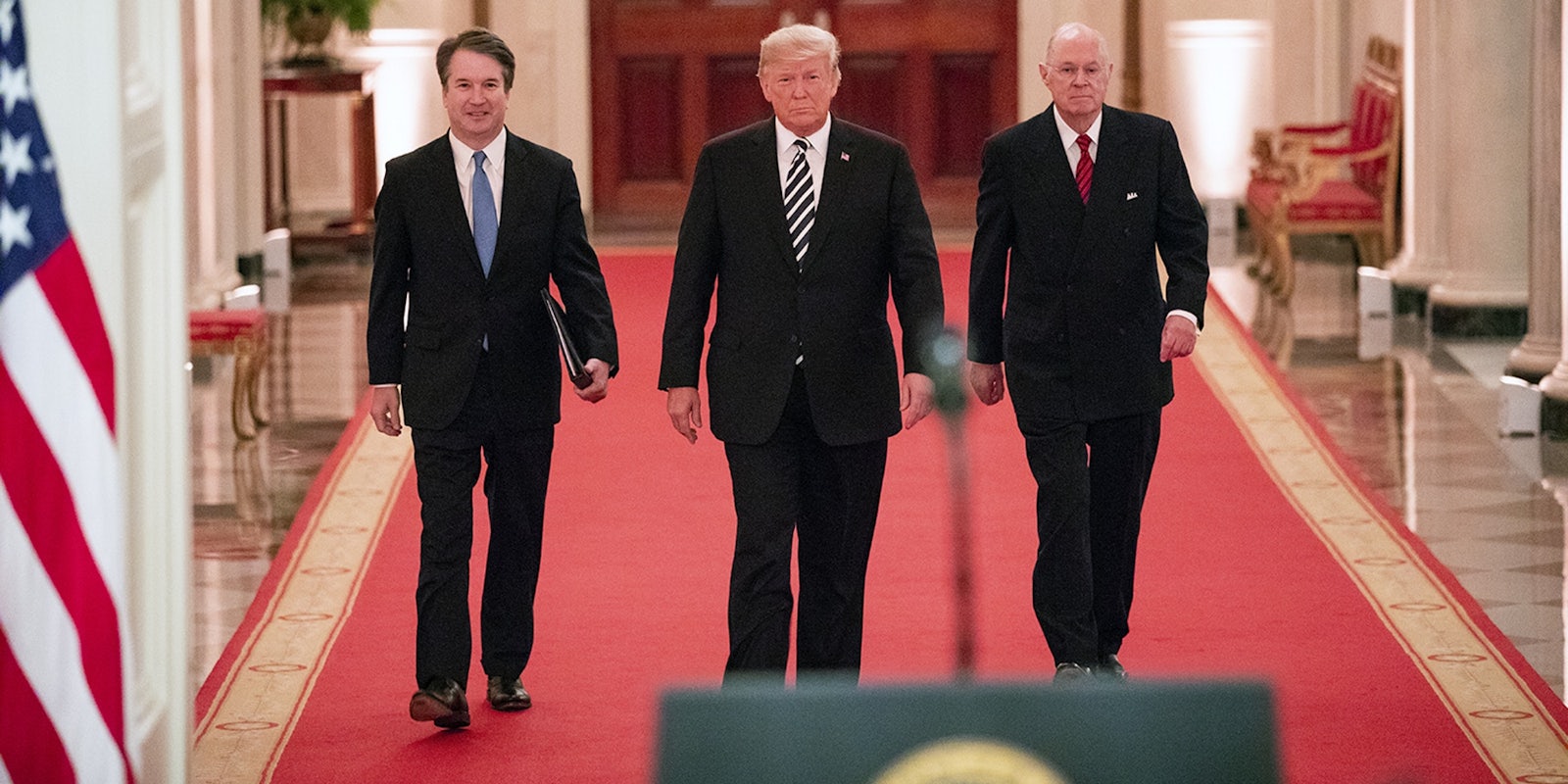As the American midterm elections approach, a new report reveals Republican candidates saw a “Kavanaugh bump” in social media interactions after Dr. Christine Blasey Ford’s testimony, according to the New York Times.
Both Democrat and Republican candidates received a spike in Facebook engagement after Dr. Ford came forward, but Republican interactions in particular soared from Sept. 23 to Oct. 7, the report claims. Engagement rose by 64 percent across Republican Senate candidates’ Facebook pages during the week of Sept. 30, whereas Democrats saw just a 30 percent increase, the Times reports.
“Republicans in toss-up races may have benefited even more from the Kavanaugh effect,” the Times notes. “Among the nine most competitive Senate races, interactions on Facebook for Republicans rose by 94 percent during the week of Sept. 30. Interactions for Democrats in those races remained flat.”
Democrats shouldn’t despair, however. Over a 30-day period on Facebook, Democratic candidates fighting for seats in the U.S. Senate received a combined total of 10 million interactions, whereas Republican candidates received a meager 2.2 million. Democratic House of Representatives candidates, on the other hand, experienced a grand total of 3.5 million Facebook interactions over Republicans’ 1.5 million.
Generally speaking, Democrats performed better than Republicans in races for the U.S. House of Representatives, whereas Republican candidates received more Facebook interactions for particularly tight races for gubernatorial campaigns and the Senate.
Democrats also appear to have a “superstar problem,” where candidates Senator Bernie Sanders (D-Vt.), Representative Beto O’Rourke (D-Texas), and Senator Elizabeth Warren (D-Mass.) saw the lion’s share of Facebook engagement. Meanwhile, the remaining Senate candidates received a combined 1.4 million Facebook interactions.
While recording a candidate’s total Facebook interactions can tell Americans more about a politician’s popularity (or lack thereof), the Times stresses that the report “does not distinguish” between whether engagement is positive, negative, or neutral. This means it’s hard to tell whether the “Kavanaugh bump” is a positive or negative phenomenon for Republicans.
“A negative comment left on a Republican candidate’s page by an angry Democrat would still count as an interaction, for example,” the Times explains. “In addition, it does not account for the fact that some candidates have more followers than others.”
As for whether social media actually matters, political strategists stress not to pay too close attention to what happens on social media.
“Retweets don’t vote,” Jonathan Strauss from the progressive PAC Swing Left said to the Times. “All of this social engagement is really just a proxy for the results that matter, which is what happens at the polls on Nov. 6.”
READ MORE
- What every American should know about the Senate Judiciary Committee
- Trump impeachment: Here are the odds Trump leaves office early
- Understanding the 25th Amendment, the unlikely path to removing Trump from office
H/T New York Times


